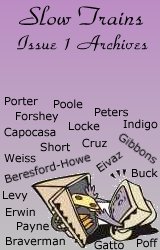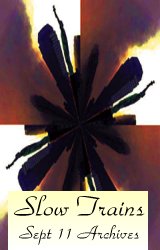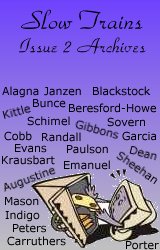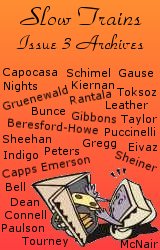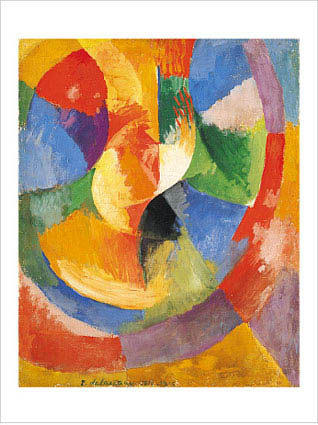
Chaos Theory
by Karen Mandell
I stand by the sink, shot glass in hand,
arm raised in tribute to the purple liquid, dietary supplement,
juice of South Sea island fruit, fresh pressed,
extra virgin, like the finest olive oil, like the oil flung
into the fire by sacrificial priests, hissing as it
strikes the flames and the stone altar.
Wildcrafted, the label says, and although we’re talking Tahiti,
I picture rag-wrapped crones plucking medicinal herbs,
fingers knobby, skin around joints shiny and red.
I drink, swallowing the viscous liquid that tastes faintly of Limberger
cheese.
You’re watching me with the unerring ability of the young adult son
to hone in on the suspect activities of his middle-aged parent.
You say,
“Look, it’s like the Heisenberg Uncertainty Principle,
by observing the natural world you become an intruder and
all your observations become worthless,
tainted by the effect of your own presence.
You take this drink and then watch to see what feels better
and of course you think you do.
Or,” you say, reaching for the butter, your arm from
elbow to fingertip longer than your entire body at birth,
“consider Chaos Theory. Everything has an effect, even that drink,
but it’d take eons to measure.
To us it appears random.
Think of two toothpicks moving the earth.
They’d do something, but how much?
Or imagine two butterflies fluttering their wings in the bushes
under the windows, eventually saving a giraffe grazing the veld.
How? By adding to the wind current which becomes a dust storm which
blows his scent downwind from the lion.
Actions unmeasurable but not meaningless. Your drink will do something,
but nothing that will make any difference you intended.
The increments too small, the time too short, the effects too random
for our comprehension. Circumstances beyond our control.
Maybe in twenty years your toenails will turn strong and thick,
unexpected recipients of the juice effluvia lapping through your veins.”
You remove four cheese and bean filled tacos from the toaster oven
and smile at me with those black Tartar eyes, gift of
some unknown ancestor from the Eurasian steppes.
Nothing is wasted -- characteristics, unexpected guests,
turn up generations after the traveler from beyond the Volga
stopped in the town on the Baltic cliffs
and, by coercion or pretty words, had his way with my relation.
And by chance changed the course of history.
He wanted to stop at the village three leagues down the road,
but the wind picked up, grit stinging his eyes and matting his
horse’s braided mane.
He’d rest here. An almost inconsequential change of plans.
What did it matter? Just travel twice as far tomorrow.
Except the girl in this town was related to me.
She had reached the crossroads and could either walk home
across the field or follow the cow path.
She’d take the path. Why not? The sun was stronger heading
west, though the field route shorter.
She made her choice, this instead of that, a moment’s thought.
If she had crossed the field, she’d hear locusts and mice and
earthworms, determined, unyielding,
wildcrafting a different story.

